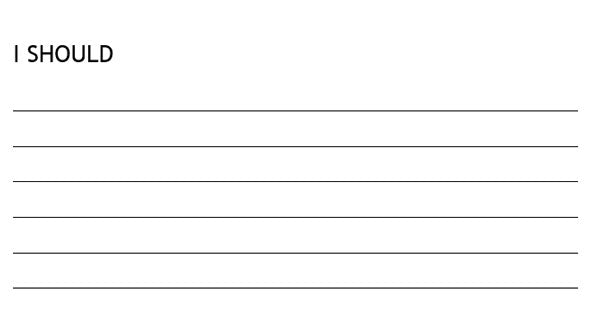It is easy to think that a different life would have been easier or better. It is easy to think that somebody else’s life is vastly better than yours and to fantasise being in someone else’s position.
This brings us to envy. Why do we feel envious? Every day we make hundreds of decisions. These decisions have good or bad consequences. No one makes good decisions all the time. This means that at some point in life you feel envious of someone who made better decisions. You may feel envious for those who had a better beginning in life, better opportunities or better luck.
Envy, if unchecked, can be debilitating. Here, we provide a series of self-reflection exercises that will help you examine this important topic. The exercises can be used by you personally or be given to delegates attending your course, followed by coaching and discussions.
Why You Should Keep an Eye on Envy
Envy can make you believe that many things in your life are fundamentally poor; that somehow you got the short straw. That there are things you don’t have, but how wonderful it would have been if you did.
The drive behind getting to where you are in life, are your thoughts, beliefs, and expectations. If you are wondering why you have not been as successful as some other people, it is time to review and change one or more of these three components.
You May Envy Your Own Past
A variation of envy is that you may envy your own past, feeling you were in a better position before than where you are now. This becomes more pronounced as people approach mid-life since by then they would have made many decisions and are then facing the consequences of those earlier decisions.
You may therefore think that if you had made better decisions you would have been in a better place now. This feeling can lead to regret, which is yet another important emotion to be kept in check. You can examine this by going through our 5-action exercise to manage regret.
The main problem with both envy and regret is exaggerated positive consequences. We tend to think that an alternative life would be vastly better. Somehow, the brain creates a rosy future when everything has gone well and compares it to the current reality. This leads to an unrealistic illusion which can make the current reality depressing.
To address envy, we must ask the right questions to get the right answers and scale down these exaggerated consequences. We should focus on where we want to go, rather than where others are going, or where we could have gone.
For Personal Use
Here, we have listed a series of self-reflection exercises for you to check on your envy. These reflective exercises are ideal for individuals to complete on their own.
In addition to the exercises listed here, you can also check our 6-step exercise on envy to gain further insight.
For Trainers
Consider including these exercises in your soft skills courses to help your delegates analyse themselves. They can be used to teach about envy on related courses such as emotional intelligence. These exercises are also useful tools for mentors and coaches.
How to Go Through the Exercises
Answer a series of questions. By attempting to answer, you will systematically make yourself less envious, appreciate what you already have and realise that the neighbour’s grass is not that much greener than yours.
Exercise 1: What Are Some of the Things You Have Envied and Acquired?
Let’s start by examining what you have envied. Think about some of the things or people that you have envied in the past and then go through the following:
Steps:
- List what you envied, planned to acquire and finally obtained.
Exercise 2: What Are the Consequences of What You Got?
Obtaining things and making decisions lead to specific consequences. Let’s analyse these consequences:
Steps:
- Using the list from Exercise 1 identify those in the list that subsequently failed to improve your life. List them all.
- What does this suggest? What does it mean for other things you envy but haven’t got yet?
Exercise 3: Can You Achieve the Same as the One You Envy?
There has never been anyone like you and there never will. Everyone is therefore unique.
Considering that you are different from everyone else, including the person you envy, what are the chances that you can achieve what they have accomplished?
Steps:
- In a few words describe if it is possible for you to achieve all that the person you envy has achieved.
Exercise 4: How Can You Turn Your Envy into Admiration?
Rather than feeling jealous about a person you envy, turn it around and praise them for it.
Steps:
- Identify a person you envy.
- Think of what they had to go through despite all the difficulties in their lives, to achieve what they had.
- Write a list of their difficulties.
- Write a list of their actions that helped them get where they are.
- Ask yourself, what preparations you need to make and what actions you should take to get to where they got. It could be challenging, but theirs wasn’t easy either.
Exercise 5: What Those Who You Envy, Envy?
Everyone envies something. Let’s analyse their envy.
“No life is perfect or complete. But it is always what you make it. So, make it unforgettable. And never let anyone take away your happiness.”
Steps:
- What do you think those who you envy might envy? List them.
Exercise 6: What Do You Envy that You Did Not Get?
It is logical to expect that, given what you have gone through in life so far, and given the decisions you have made, and the resources you have had, and the effort you have put in, you did not get what you envy. This is reasonable.
Steps:
- List what you envy that you did not get.
Exercise 7: What Are the Gains and Losses?
We make decisions every day. Some decisions are small, and some are big. They all have consequences. With every decision we hope that the gains outweigh the losses. Gains and losses analysis are an incredibly powerful tool that help you put envy in perspective. Some look too much into gains and ignore losses, some vice versa. Thinking of both leads to a balanced view.
Steps:
- Consider what you envied that you finally obtained. Use the results of Exercise 1.
- Make a table with two columns: Gains and Losses.
- For each item that you envied, and obtained, identify what you gained when you got it, and what you lost.
- Now consider what you envy that you have not obtained so far. Use the results of Exercise 6.
- Make a new table with the two columns of Gains and Losses.
- For each envy that you have not obtained yet, identify what you will gain once you get it and what you will lose.
Only the products of your work will disappear. The struggle, the devotion, you put into your endeavours… that’s where the value truly lies, and will remain: within you.
All life includes loss. It’s taken me many, many years to deal with that, and I don’t expect that I will ever be fully resigned to it. But that doesn’t mean we have to run away from the world, or stop striving for the best we can do and be. We owe that much to ourselves, at least, and we deserve whatever measure of good may come of it.
Jeff in Replay (by Ken Grimwood)
Exercise 8: How Would Others See You?
Analysing how others view you can be quite powerful.
Steps:
- Consider someone who likes you or is your fan.
- How would they describe you without the thing you envy?
Exercise 9: What Actions Get You Closer to a Compelling Future?
It is time to pull it together in this final exercise.
It is easy to get obsessed about something you envy and don’t have. Envy can be useful because it tells you about an underlying fundamental need. Focus on that need instead and you will turn envy into a powerful motivational tool.
To create a change in behaviour and get closer to what you envy, you must adjust your thoughts, beliefs and expectations.
Steps:
What are your thoughts in regard with what you envy?
- Review the results of previous exercises and adjust your thoughts accordingly.
- “Thoughts become things” as beautifully expressed by Napoleon Hill in “Think and Grow Rich”. If you think about what you want to get every day, you are more likely to get it. See Focused Determination for a comprehensive guide on this.
What are your beliefs in regard with what you envy? Consider any destructive thoughts you may have such as the following and address them:
- Do you believe you can never get it?
- Do you believe it is extremely hard?
- Do you believe it takes what you don’t have or could never have?
- Do you believe you don’t deserve it?
- Do you believe it is not aligned with your values? If so, examine your values as there might be contradictions there.
What are your expectations in regard with what you envy? Review what you have gone through so far in previous exercises in regard with expectation:
- What do you expect to achieve by getting what you envy?
- How would it change your life?
- Would the change be worth the effort?
- Is what you desire aligned with everything else you desire? Spot contradictions. Think gains and losses.
Based on what you have identified in this exercise and previous exercises, list at least 10 actions you can take now that will help you get closer to what you envy.
Having taken these actions, how close will you be in one year or in three years? If not there, what is stopping you?
Plan these actions and do them.
May your envy rest in peace.
Soft Skills Training Materials
Get downloadable training materials
Online Train the Trainer Course:
Core Skills
Learn How to Become the Best Trainer in Your Field
All Tags
Training Resources for You

Course Design Strategy
Available as paperback and ebook

Free Training Resources
Download a free comprehensive training package including training guidelines, soft skills training activities, assessment forms and useful training resources that you can use to enhance your courses.

Our Comprehensive Guide to Body Language

Train the Trainer Resources
Get Insights - Read Guides and Books - Attend Courses
Training Materials
Get downloadable training materials on: Management Training, Personal Development, Interpersonal Development, Human Resources, and Sales & Marketing














Leave a comment
All comments are moderated before being published.
This site is protected by hCaptcha and the hCaptcha Privacy Policy and Terms of Service apply.